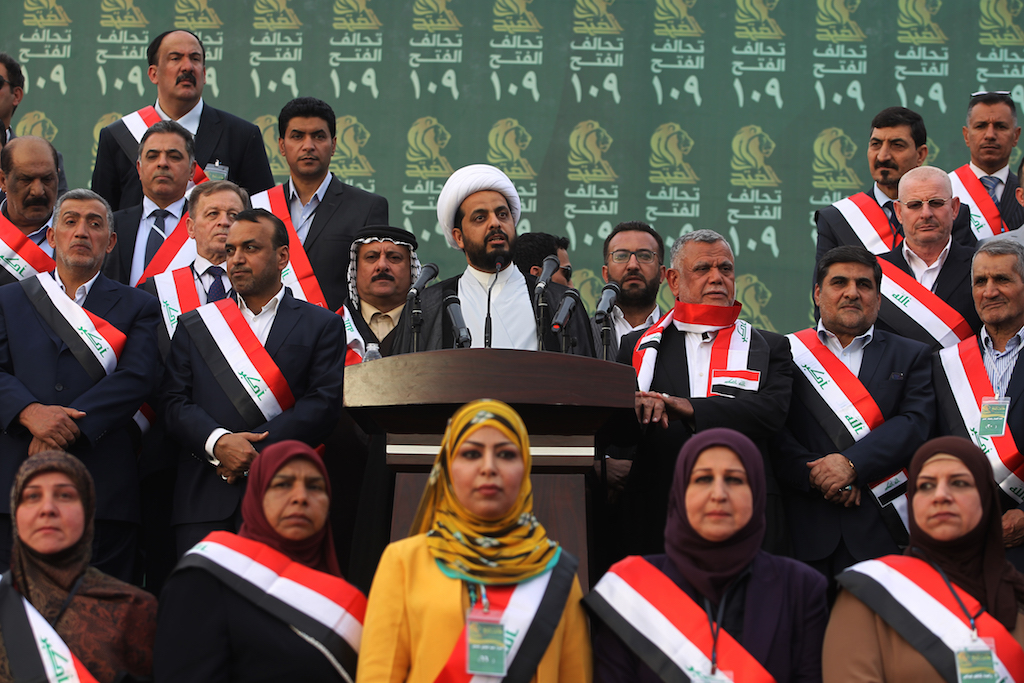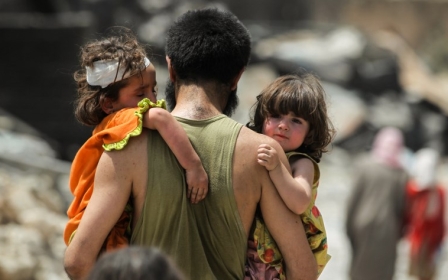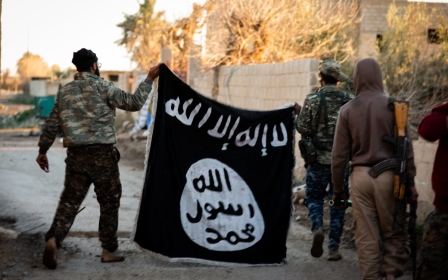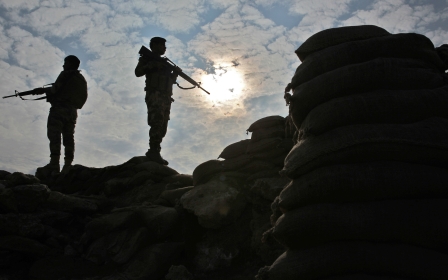Get out: Iraqi MPs push laws calling for US troop withdrawal
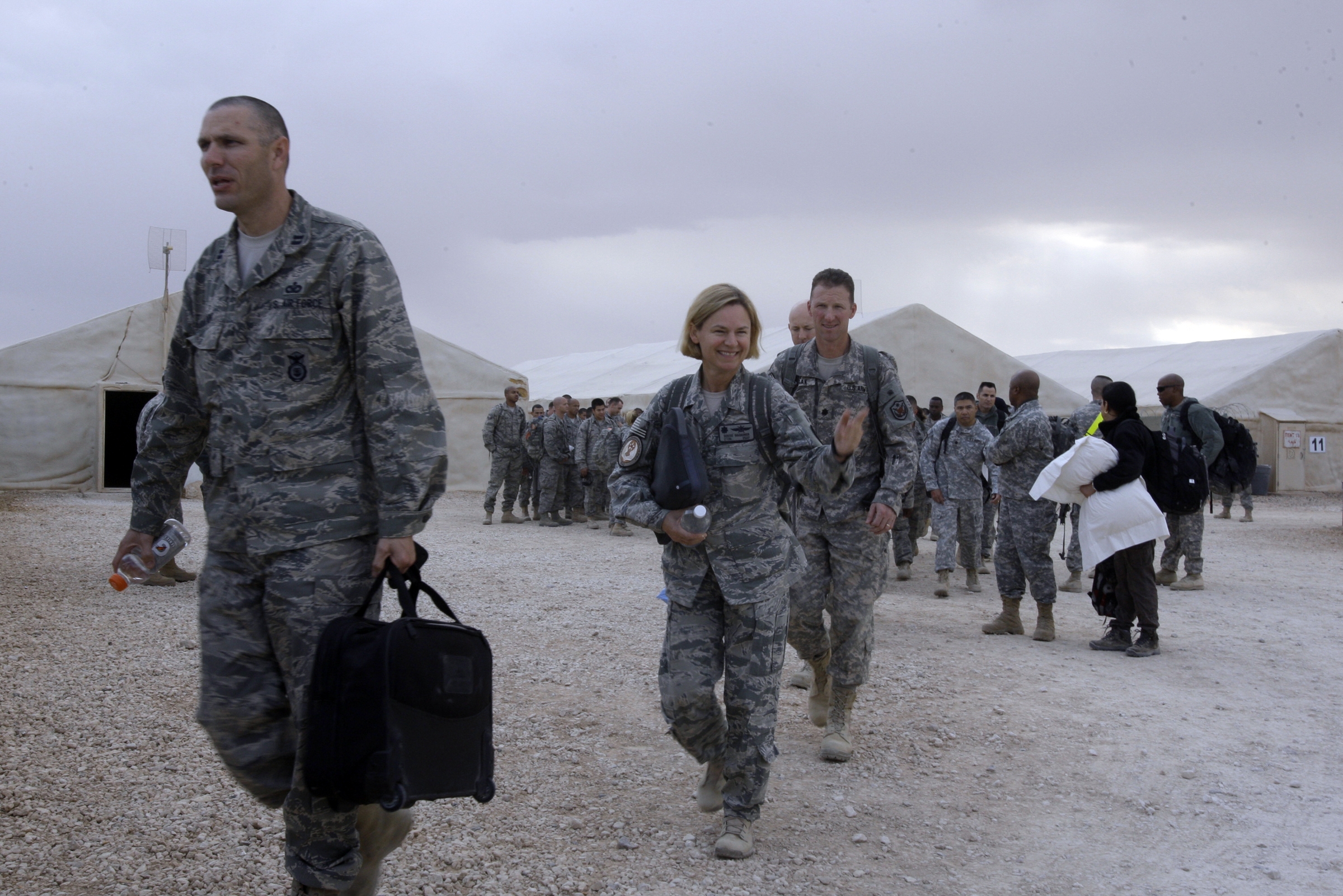
Iraq's two largest political coalitions are pushing for all foreign forces to pull out of the country, days ahead of the 16th anniversary of the US invasion.
According to Iraqi media, parliamentary committees comprising supporters and allies of Sairoun, the coalition backed by Shia cleric Muqtada al-Sadr, and Fatah, largely made up of Iran-supported groups, have produced two draft laws calling for the withdrawal of foreign troops.
One calls for a full withdrawal within 12 months, the other within 36.
The political groups, which are both led by veterans of the fight against the US occupation, have long called for US forces to leave Iraq, particularly following the defeat of the Islamic State group in Mosul in 2017. But this is the first time MPs have backed a specific deadline.
In March 2018, the Iraqi parliament voted for the government to set a timeline for the withdrawal of troops, but nothing happened and the government and parliament have since changed.
New MEE newsletter: Jerusalem Dispatch
Sign up to get the latest insights and analysis on Israel-Palestine, alongside Turkey Unpacked and other MEE newsletters
Last month, Sadr said that he would push troop withdrawal onto the parliamentary agenda in March.
Total US withdrawal would be very negative, especially with IS attacks increasing
- David M Witty, analyst
Around 5,200 US troops are estimated to be currently stationed in Iraq, according to the Pentagon.
The latest attempt to remove them comes in the wake of comments made by US President Donald Trump that troops would remain in Iraq to "watch Iran".
During a trip to the Al-Asad airbase in December - a trip which stoked further controversy as the president chose not to meet with Iraqi officials - Trump broke with the official US policy line that troop deployment was purely aimed at targeting IS.
"We spent a fortune on building this incredible base. We might as well keep it," he said.
"And one of the reasons I want to keep it is because I want to be looking a little bit at Iran because Iran is a real problem."
His comments frustrated Iraqi politicians already insulted that Trump hadn't bothered to meet them.
Hamad Allah al-Rikabi, a spokesperson for parliament’s pro-Sadr bloc, said the visit proved “the recklessness of the United States of America in its dealing with others”.
He called on the parliament to “play its role and adopt a national, historical attitude and put an end to the frequent violations to the Iraqi sovereignty by the American government and to issue a decision to get the American forces out of Iraq".
Despite Trump’s comments, the Pentagon has expressed a willingness to shift more responsibility onto Iraq’s domestic security forces.
Last week, testifying before congress, Chairman of the Joint Chiefs of Staff Joseph Dunford said the Pentagon’s proposed 2020 budget would support the “enduring presence” of US troops in Iraq that would be “slightly less than the forces that are on the ground right now".
Middle East Eye delivers independent and unrivalled coverage and analysis of the Middle East, North Africa and beyond. To learn more about republishing this content and the associated fees, please fill out this form. More about MEE can be found here.


